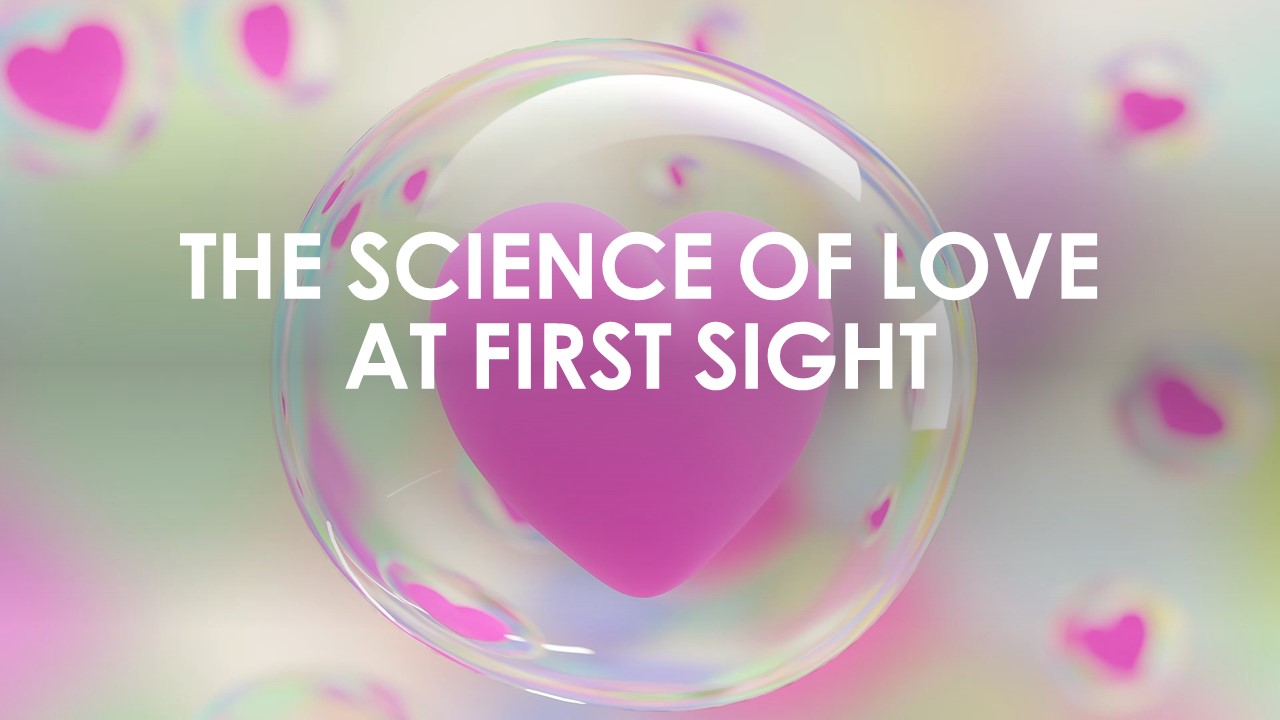Romantic love has been traditionally portrayed as a mysterious, inexplicable bond between two people—a man and a woman. It is a feeling that can’t be explained by logic or rational thought. Love emerges from the heart, not from the head. Love is a mysterious experience that makes a person enormously happy or sorrowfully miserable. It often comes unexpectedly as the enigmatic sense of “love at first sight.” We instantly know it is he or she—one who is special and uniquely destined for us.
The mysterious feelings associated with love are fascinating. And people across many cultures experience love at first sight.
Does this imply that love has a supernatural power? Is there any way for science to explain the “love-at-first-sight” phenomenon? Researchers have been able to explore the psychological experience of why I might fall in love with someone I just met for the first time.
The Irrational Nature of Love at First Sight
The cross-cultural commonality of the phenomena and lexicon of love at first sight likely emerges from the basic human mechanisms, which are psychological and physiological in nature. This experience of love is largely unconscious, irrational, intuitive, and not well reflected by individuals. One can explain this irrational aspect of love through the biochemistry of love or fate.
Fate is a good old-fashioned explanation for less educated people. Biochemistry sounds more scientific—according to the modern educated culture. Nevertheless, it still sounds magical. It implies that love at first sight is impossible to explain rationally.
Scientific Explanations of Love at First Sight
Scientifically, a “hindsight bias” can explain the belief in love’s destiny. In hindsight, memories of events are distorted. This is an experience of the “knew-it-all-along” phenomenon, when a person overestimates how predictable past events are. This is a psychological predictability illusion.
Here is another scientific explanation. It is likely that intuitive abilities allow a person to quickly appraise a suitable partner in about 100 ms (Olson & Marshuetz, 2005; Willis & Todorov, 2006). A physically attractive man or woman is more likely to spark love at first sight. It triggers their instant passionate physical attraction, which is experienced intuitively as an intense gut feeling.
This heightened passion of infatuation precipitates the “halo” effect, transmitting this emotional experience in total adoration of the beloved one. “José Maria had been a victim of Cupid’s arrows the instant he laid eyes on Soledad. Physical attraction and erotic passion were transformed in romantic love into an intuition of the qualities of the beloved” (Dueñas-Vargas, 2015p. 2).
The phenomenon can also be explained as an altered, idealized perception of another person induced by romantic infatuation or retrospective illusion (Grant-Jacob, 2016; Zsok, Haucke, De Wit, & Barelds, 2017). This is referred to as the “love is blind” bias. The belief in love at first sight can be retrospective due to the positive hindsight bias and the projection of current passion onto the first encounter. Unconsciously, their first meeting is tied to romantic relationship ideals as a way to make it special.
Cultural Differences in Attitudes Toward Love at First Sight
The cultures, however, differ in the value that people place on idealization and romantic beliefs—love at first sight is among those. Studies conducted in the 1980s–1990s and early 2000s (see, for review, Karandashev, 2019, 2021b) discovered that French, Germans, British, and Russians are more romantic than Americans. However, Americans are more romantic in their beliefs than Japanese, Chinese, Indians, Turkish, and African students.
The major noticeable differences between these societies are individualistic versus collectivistic, liberal versus conservative values, idealistic versus pragmatic orientations of their cultures, and corresponding individual freedom versus kin responsibility in marital choice. We can expect that people in those societies have corresponding beliefs about love at first sight—whether it is worthwhile to believe in this kind of love or not, if you have the freedom to follow your emotional inspiration or not. It’s also worth mentioning that in some countries, the old European traditions of romantic literature and art can still have a lasting effect on romantic beliefs. The belief in love at first sight is among them.
